I am very new to developing in Android and I am trying to develop test automation for Android apps. When I run my test, I keep hitting the unable to resolve dependency issues. My attached code is an attempt to just click on the login button of the app. Here is my code :
Main app:
package com.example.test;
import io.appium.java_client.android.AndroidDriver;
import org.junit.Before;
import org.junit.Test;
import org.openqa.selenium.By;
import org.openqa.selenium.remote.DesiredCapabilities;
import java.net.MalformedURLException;
import java.net.URL;
/**
* Instrumented test, which will execute on an Android device.
*
* @see <a
href="http://d.android.com/tools/testing">Testingdocumentation</a>
*/
//@RunWith(AndroidJUnit4.class)
public class ExampleInstrumentedTest {
private AndroidDriver driver;
@Before
public void setup() throws MalformedURLException {
DesiredCapabilities capabilities = new DesiredCapabilities();
capabilities.setCapability("deviceName", "emulator-5444");
capabilities.setCapability("platFormName","Android");
capabilities.setCapability("appPackage",
"com.mol.molwallet.uat");
capabilities.setCapability
("appActivity","com.mol.molwallet.start.SplashActivity");
capabilities.setCapability("noReset","true");
driver = new AndroidDriver(new URL
("http://127.0.0.1:4725/wd/hub"),capabilities);
}
@Test
public void myFirstTest() {
//Context of the app under test.
driver.findElement(By.xpath("//*[@text='LOG IN']")).click();
//assertEquals("com.example.test", appContext.getPackageName());
}
}
App/Build.Gridle:
apply plugin: 'com.android.application'
android {
compileSdkVersion 29
buildToolsVersion "29.0.1"
defaultConfig {
applicationId "com.example.test"
minSdkVersion 15
targetSdkVersion 29
versionCode 1
versionName "1.0"
testInstrumentationRunner "android.support.test.runner.AndroidJUnitRunner"
}
buildTypes {
release {
minifyEnabled false
proguardFiles getDefaultProguardFile('proguard-android-optimize.txt'), 'proguard-rules.pro'
}
}
}
dependencies {
implementation fileTree(dir: 'libs', include: ['*.jar'])
//noinspection GradleCompatible
implementation 'com.android.support:appcompat-v7:+'
implementation 'com.android.support.constraint:constraint-layout:1.1.3'
testImplementation 'junit:junit:4.12'
androidTestImplementation 'com.android.support.test:runner:1.0.2'
androidTestImplementation 'com.android.support.test.espresso:espresso-core:3.0.2'
androidTestImplementation 'com.android.support:support-annotations:24.0.0'
implementation("com.android.support:support-v4:27.1.1")
//implementation project(':react-native-fast-image')
}
if(hasProperty('buildScan')){
buildScan {
termsOfServiceUrl = 'https://gradle.com/terms-of-service';
termsOfServiceAgree = 'yes'
}
}
Project/Build.gradle
// Top-level build file where you can add configuration options common to all sub-projects/modules.
buildscript {
repositories {
google()
jcenter()
}
dependencies {
classpath 'com.android.tools.build:gradle:3.1.0'
// NOTE: Do not place your application dependencies here; they belong
// in the individual module build.gradle files
}
}
allprojects {
repositories {
google()
jcenter()
}
}
task clean(type: Delete) {
delete rootProject.buildDir
}
Upon running, I get the following errors
"build.gradle: Unable to resolve dependency for ':app@releaseUnitTest/compileClasspath': Could not find any version that matches com.android.support:appcompat-v7:29.+.
<a href="Unable to resolve dependency for ':app@releaseUnitTest/compileClasspath': Could not find any version that matches com.android.support:appcompat-v7:29.+.">Show Details</a>
Affected Modules: <a href="openFile:C:/Users/chiomeng.lam/IntelliJIDEAProjects/Test/app/build.gradle">app</a>"
Base on the error, I kind of get the impression that some version is mismathc. But my problem is, what version of what is mismatched.

